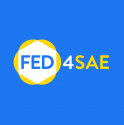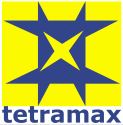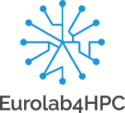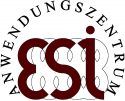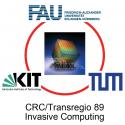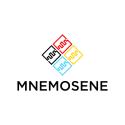| Time | Label | Session |
|---|
| 07:30 | W10.1 | Registration Desk opens
|
| 08:30 | W10.2 | Workshops start
|
| 08:45 | W10.3 | Welcome
|
| 09:00 | W10.4 | Keynote -- "PULP: An Open-Source RISC-V Based Multi-Core Platform for In-Sensor Analytics" Davide Rossi (University of Bologna)
Speaker:
Davide Rossi, Università di Bologna, IT
Talk synopsis:
The "internet of everything" envisions trillions of connected objects loaded with high- bandwidth sensors requiring massive amounts of local signal processing, fusion, pattern extraction and classification. While silicon access cost is naturally decreasing due to the twilight of the Moore's law, the access to hardware IPs still represents a huge barrier for innovative start-ups and companies approaching the market of IoT. In this context, the recent growth of high-quality open source hardware IPs represents a promising way to surpass this barrier, paving the way for a number of exciting applications of open-source electronics. In this talk, I will describe the evolution of the open-source Parallel-Ultra-Low-Power (PULP) platform as well as opportunities and challenges for next generation open source computing systems.
Speaker biography:
Davide Rossi, received the PhD from the University of Bologna, Italy, in 2012. He has been a post doc researcher in the Department of Electrical, Electronic and Information Engineering "Guglielmo Marconi" at the University of Bologna since 2015, where he currently holds an assistant professor position. His research interests focus on energy efficient digital architectures in the domain of heterogeneous and reconfigurable multi and many-core systems on a chip. This includes architectures, design implementation strategies, and runtime support to address performance, energy efficiency, and reliability issues of both high end embedded platforms and ultra-low-power computing platforms targeting the IoT domain. In these fields, he has published more than 80 paper in international peer- reviewed conferences and journals. |
| 10:00 | W10.5 | Coffee break 1 + Demos
- nextpnr -- a portable FPGA place and route tool
- David Shah and Eddie Hung (SymbioticEDA, AT)
- OpenFPGA: a Complete Open Source Framework for FPGA Prototyping
Baudouin Chauviere, Aurélien Alacchi, Edouard Giacomin, Xifan Tang and Pierre-Emmanuel Gaillardon (University of Utah, USA)
- Please check website for the most up-to-date list of demos: https://osda.gitlab.io/
|
| 10:30 | W10.6 | Session 1: Full Papers
- LiteX: an open-source SoC builder and library based on Migen Python DSL
Florent Kermarrec, Sébastien Bourdeauducq, Jean-Christophe Le Lann and Hannah Badier (Enjoy-Digital, FR)
- On Hardware Verification In An Open Source Context
Ben Marshall (University of Bristol, UK)
- PyGears: A Functional Approach to Hardware Design
Bogdan Vukobratović, Andrea Erdeljan and Damjan Rakanović (University of Novi Sad, RS)
|
| 11:30 | W10.7 | "LegUp High-Level Synthesis and its Commercialization" Jason Anderson (University of Toronto)
Speaker:
Jason Anderson, University of Toronto, CA
Talk synopsis:
High-level synthesis (HLS) is the automated synthesis of a hardware circuit from a software program First proposed in the 1980s, and spending decades on the sidelines of mainstream RTL digital design, there has been tremendous buzz around HLS technology in recent years. HLS is on the upswing as a design methodology for field-programmable gate arrays (FPGAs) to improve designer productivity and ultimately, to make FPGA technology accessible to software engineers having limited hardware expertise. The hope is that down the road, software developers can use HLS to realize FPGA-based accelerators customized to applications that work in tandem with standard processors to raise computational throughput and energy efficiency. In this talk, I will overview the trends behind the recent drive towards FPGA HLS and why the need for, and use of, HLS will only become more pronounced in the coming years. The talk will highlight current HLS research directions and expose some of the challenges for HLS that may hinder its update in the digital design community. I will describe work underway in the LegUp HLS project at the University of Toronto -- a publicly available HLS research tool that has been downloaded by over 5000 groups from around the world. LegUp HLS technology is being commercialized in a start-up company, LegUp Computing Inc. (https://www.legupcomputing.com/), which was founded in 2015 and received seed funding from Intel Capital in 2018. A key value proposition of LegUp HLS is FPGA-vendor agnosticism — synthesized circuits can be targeted to any FPGA.
Speaker biography |
| 12:00 | W10.8 | Lunch break
|
| 12:45 | W10.9 | Panel discussion: "How does one commercialise/undertake research on open-source EDA/IP?" [nid:66134]
Panelists:
Andrea Borga, oliscience, NL
Ulrich Drepper, Red Hat, DE
Hipolito Guzman, University of Sevilla, ES
Clifford Wolf, Symbiotic EDA, AT
Panellists:
- Andrea Borga (Oliscience, Netherlands) -- biography
- Uli Drepper (Red Hat, Germany) -- biography
- Hipólito Guzmán (University of Seville, Spain) -- biography
- Clifford Wolf (Symbiotic EDA, Austria) -- biography
will be discussing whether it is possible to build a (stable!) business or research group around open-source -- when the things that you are building is ostensibly given away for free. Topics explored will be panellist's experiences with doing this, their opinions on the various open-source licenses (copyleft versus permissive) in the context of hardware, their views on whether open and closed-source can co-exist, and the momentum within the EU to mandate "open access" research. |
| | Panelists:
|
| 13:30 | W10.10 | "VHDL Reuse: from Vendor Independence to Open Source" Daniel van der Schuur (ASTRON, Netherlands)
Speaker:
Daniel van der Schuur, ASTRON, NL
Talk synopsis:
ASTRONs mission is to make discoveries in radio astronomy happen. The high performance streaming data systems we build to do that naturally have FPGAs at their hearts. To balance project requirements, cost and availability of FPGA devices, ASTRON uses an approach that is both vendor and application independent. With generic, universal FPGA platforms (UniBoard, UniBoard2, Perentie), new science applications can take advantage of already available hardware. By also having a vendor independent VHDL library and tool flow, new FPGA hardware can also be adopted/developed with minimal firmware rework needed. This talk is about the advantages of vendor independence and how we chose to implement this, covering VHDL source code, vendor IP, library structures and simulation and synthesis tools. Another important aspect is the automated regression testing of the firmware library as it is updated on a daily basis. All this is made possible and structured by ASTRONs scripted tool flow, which is to be released as open source on OpenCores.org. Finally, this talk will cover how and why ASTRON is going to release its firmware library on OpenCores, and the technical challanges in doing so.
Speaker biography:
Daniel van der Schuur is a digital designer at the Netherlands Institute for Radio Astronomy (ASTRON). As ASTRON designs, builds and operates complex high performance hybrid (FPGA, GPU, CPU, fiber networks) systems to make new discoveries, Daniel is passionate about reducing the time to science - from streaming system design to VHDL implementation. |
| 14:00 | W10.11 | Session 2 -- Lightning Talks
- Enabling FPGA Domain-specific Compilers Through Open Source
Alireza Kaviani and Chris Lavin (Xilinx Research Labs, USA)
- Minitracer: A minimalist requirements tracer for HDL designs
Carlos López-Melendo and Hipólito Guzmán-Miranda (University of Seville, ES)
- OpenFPGA: a Complete Open Source Framework for FPGA Prototyping
Baudouin Chauviere, Aurélien Alacchi, Edouard Giacomin, Xifan Tang and Pierre-Emmanuel Gaillardon (University of Utah, USA)
- Please check website for the most up-to-date list of speakers: https://osda.gitlab.io/
|
| 14:30 | W10.12 | Coffee break 2 + Posters
|
| 15:00 | W10.13 | "UVVM - The fastest growing FPGA verification methodology world-wide!" Espen Tallaksen (Bitvis, Norway)
Speaker:
Espen Tallaksen, Bitvis, NO
Talk synopsis:
On average half the development time for an FPGA is spent on verification. It is possible to significantly reduce this time, and major reductions can be accomplished with only minor adjustments and no extra cost. For an FPGA design we all know that the architecture - all the way from the top to the micro architecture - is critical for both the FPGA quality and the development time. It should really be obvious that this also applies to the testbench. UVVM (the open source Universal VHDL Verification Methodology) was developed to solve this and will reduce the verification time significantly while at the same time improving the product quality. UVVM provides a very simple and powerful architecture that allow designers to build their own test harness much faster than ever before - using a mix of their own and open source verification components. UVVM also provides an architecture, methodology and library to allow VHDL verification components to be made extremely efficiently. And maybe the most important feature - UVVM allows the best possible testbench and test case overview using high level commands for both DUT interface control and synchronization. The great overview, maintainability, extensibility, modifiability and reuse has resulted in an extraordinary fast spread of this methodology - and according to the 2018 Wilson Research report UVVM was the by far fastest growing FPGA verification methodology over the last two years. UVVM is the new standardised VHDL testbench architecture, recommended by Doulos and backed by ESA (the European Space Agency) through a contract for further extension of the UVVM functionality. This presentation will show you how simple this is to understand, build and control. It will also show the latest features from the ESA project and further planned extensions.
Speaker biography |
| 15:45 | W10.14 | Session 3 -- Full papers
- PRGA: An Open-source Framework for Building and Using Custom FPGAs
Ang Li and David Wentzlaff (Princeton University, USA)
- An Open-source Framework for Xilinx FPGA Reliability Evaluation
Aitzan Sari, Vasileios Vlagkoulis and Mihalis Psarakis (University of Piraes, GR)
- Python Wraps Yosys for Rapid Open-Source EDA Application Development
Benedikt Tutzer, Christian Krieg, Clifford Wolf and Axel Jantsch (TU Wien, AT)
|
| 16:45 | W10.15 | "FuseSoC - Cores never been so much fun" Olof Kindgren (Qamcom Research & Technology/FOSSi Foundation)
Speaker:
Olof Kindgren, Qamcom Research & Technology, SE
Talk synopsis:
In many ways, HDL developers have been many years behind their counterparts in the software world. One such area is core management. Where the software developers simply specify which libraries they depend on, HDL developers rely on copying around source code. Where software developers can select their build tool with a flick of a switch, HDL developers use tool-specific project files powered by custom makefiles. FuseSoC rectifies this by bringing a modern package manager and a uniform build system to HDL developers, making it easy to reuse existing code, change tools and move projects between FPGAs from different vendors. Having been around for seven years there are now hundreds of FuseSoC-compatible cores and 14 different simulation, synthesis and lint tools supported. This presentation will give an overview of where FuseSoC can help spending less time on the cores, and more time on the core business
Speaker biography:
Olof Kindgren is a senior digital design engineer working for Qamcom Research & Technology. He became actively involved with free and open source silicon through the OpenRISC project in 2011 and has since then worked on many FOSSi projects with a special interest in tools and collaborations. Notable work include the FuseSoc IP core package manager; SERV, the award-winning RISC-V CPU and ipyxact, the IP-XACT Python library. In 2015, he also co-founded FOSSi Foundation, a vendor-independent organization with the mission to promote and assist Open Source Silicon in academia, the industry and for hobbyists alike. |
| 17:15 | W10.16 | Closing remarks
|
| 17:30 | W10.17 | Workshops end
|



